The premiere party for the movie Freeheld at the Toronto International Film Festival last month was crowded, with guests squeezed into the opulent downtown restaurant Montecito. It had rained hard earlier in the day, but the skies cleared for the event's red carpet. The film's stars, as well as its director, Peter Sollett, and its screenwriter, Ron Nyswaner, were celebrating. And in a corner of the restaurant, slightly away from the din, Stacie Andree and Dane Wells — whose lives are depicted in Freeheld — talked about how strange the experience was for them.
Set between 2002 and 2006, Freeheld is the love story of Laurel Hester (played by Julianne Moore) and Andree (played by Ellen Page), an ordinary lesbian couple in Ocean County, New Jersey. It's also the story of how Hester, after learning she was dying from lung cancer, had an extraordinary fight with their county government — the Freeholders — in order for Andree, an auto mechanic, to receive her police benefits. Wells, a former detective played by Michael Shannon, had been Hester's partner at work — a straight man who became an unlikely LGBT ally as he advocated for his friend. Andree and Wells had seen the movie two weeks earlier at a private screening, and it had both moved and shaken them; they were anticipating the same feelings seeing it again at the premiere.
"I was pretty much a basket case for the better part of a week," said Wells, in a red tie and a three-piece gray suit with a precisely folded pocket square. "I probably will be again." And Andree, who was surrounded by friends and her girlfriend to support her, said, "I would say it opens the door again."
Andree raised her voice over Whitney Houston's "I Wanna Dance With Somebody" and said, "I mean, I can take myself back to the day she got sick, or to the day that we first went to the Freeholders to ask for permission. Or to the day she actually passed."
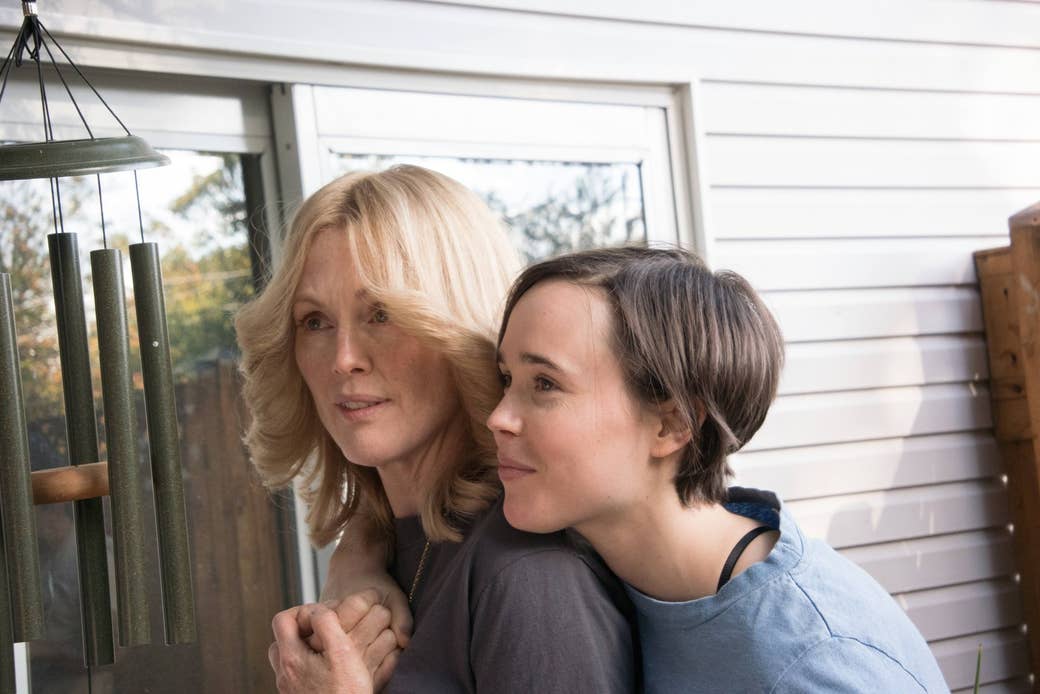
Hester ended up winning the war with the Freeholders, shortly before she died: They finally agreed to grant Andree the right to her pension on Jan. 25, 2006. Hester died, at age 49, less than a month later. Along the way, her plight had become a national news story, and an embarrassment for New Jersey — in its aftermath, it led directly to the New Jersey Supreme Court ruling in favor of civil unions for same-sex couples later that year. The dramatic real-life events unfolded in Cynthia Wade's 2007 documentary short, also called Freeheld, which serves as the basis for this fictional version released this week.
In 2005, when Wade first heard about Hester, she had just had her second child and was in, she said in a recent telephone interview, "creative despair." But after reading in the New Jersey press about Hester, she had a feeling about the story. Not knowing what she would find when she got there, Wade and an assistant rented a Zipcar to go from Brooklyn to film one of the Freeholders meetings in which Hester's demand to bestow her benefits to Andree was again turned down. (Gov. Jon Corzine had signed into law that domestic partners of state employees were entitled to benefits, but the police were county employees, and there was no such rule. It was this loophole that the group of five Republican Freeholders, all white men, cited in their rejection.)
"I did see their story as a vehicle for the wider issue of marriage equality."
At the meeting, Wade filmed Hester, Andree, and Steven Goldstein, the founder of the LGBT group Garden State Equality, who, like Wade, had also identified Hester's battle as an important one. He had taken up her cause, bringing protestors and increased press attention to the whole mess. In Freeheld, Goldstein is played by Steve Carell, who gleefully enacts Goldstein's brash, direct-action tactics. "I deeply cared for Laurel and Stacie," Goldstein said in a phone interview. "But absolutely correct, I did see their story as a vehicle for the wider issue of marriage equality. And for someone like me who fights for civil rights, there's no mutual exclusivity there."
From what Wade saw, she knew she needed to document it. "This is it, this is the film," she remembered telling her husband. And she needed to move quickly. "This window is closing fast on this woman's fight and life," Wade recalled thinking.
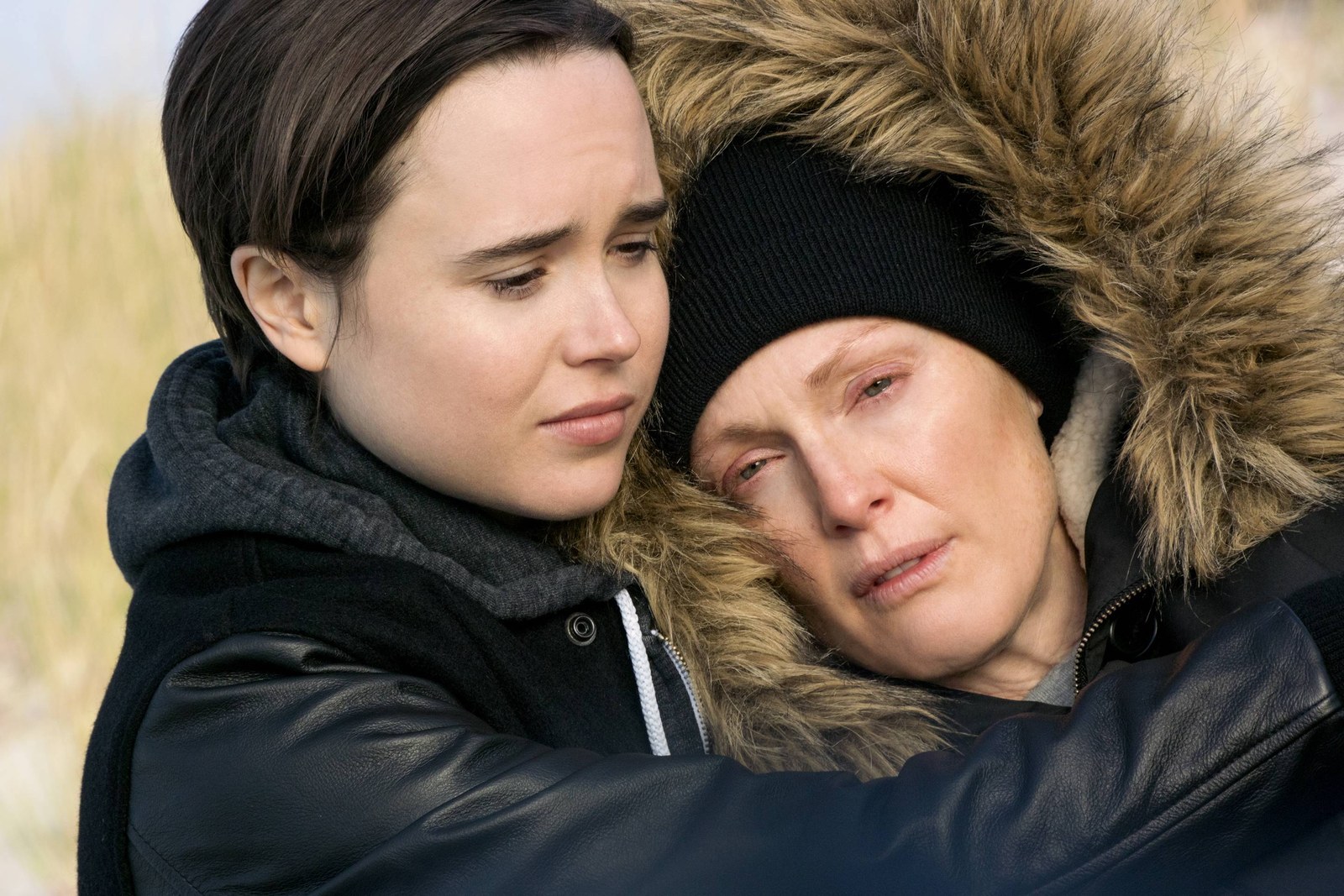
Hester was the easy one to convince, Wade said — upon getting her stage 4 diagnosis, one of Hester's disappointments was that she would never get to write a book about her 23-year career as a detective. "It was profoundly sad for her — she realized that she wasn't going to be able to write the book," Wade said. "The documentary became a shared project with her in those early weeks, because it's something she could focus on."
Hester had kept files on everything, which was perfect for Wade. "Later, actually, I found out she had a folder on me — she was doing research on me!" Wade said. "It was a funny moment." (Hester wasn't the only one looking into Wade. When Wade saw that Wells was a key player in Hester's story, she left him a voicemail message asking to interview him. He used the recording to figure out her motives and character. Wade said: "He listened to that message over and over again, and just like a detective, brought it over to Laurel and Stacie. They analyzed my voice and decided I was the person.")
As Hester fought to live and fought the Freeholders, Andree, who was almost 20 years younger than Hester, was the hardest to persuade that they also needed a documentarian following them around. "And rightfully so," Wade said. "She was overwhelmed, she was trying to keep her job at the auto shop, she was caring for Laurel. And who was I, anyway?" But according to Wade, Hester "rallied" as they worked together. "When Stacie saw that, she relaxed a bit. And then as Stacie got to know me, we started to get closer," Wade said. "I essentially moved in."
"I thought I was going to make the most depressing film on the planet."
As Wade filmed, Hester became sicker and sicker. She lost her hair and used a nebulizer to help her breathe. But the Freeholders seemed not to be budging. "I thought I was going to make the most depressing film on the planet," Wade said. "That there was going to be no ending — or a really, really bad, sad ending. I thought, How could this possibly go any other way? This is horrible."
The Freeholders did reverse, finally — the behind-the-scenes of which is played out in the feature version of Freeheld — in part because Goldstein, who had co-chaired Corzine's 2000 campaign, got the governor to call the group. "The Freeholders were looking for any excuse, and so Corzine said he'd make sure legislation would be introduced to close the loophole in the law, in the then-domestic partner law, to make sure that county governments would never be put in that position again," Goldstein said, laughing while thinking about it. "It didn't even make sense what the Freeholders were asking for. But they wanted to save face. They were looking for anything. So, sure!"
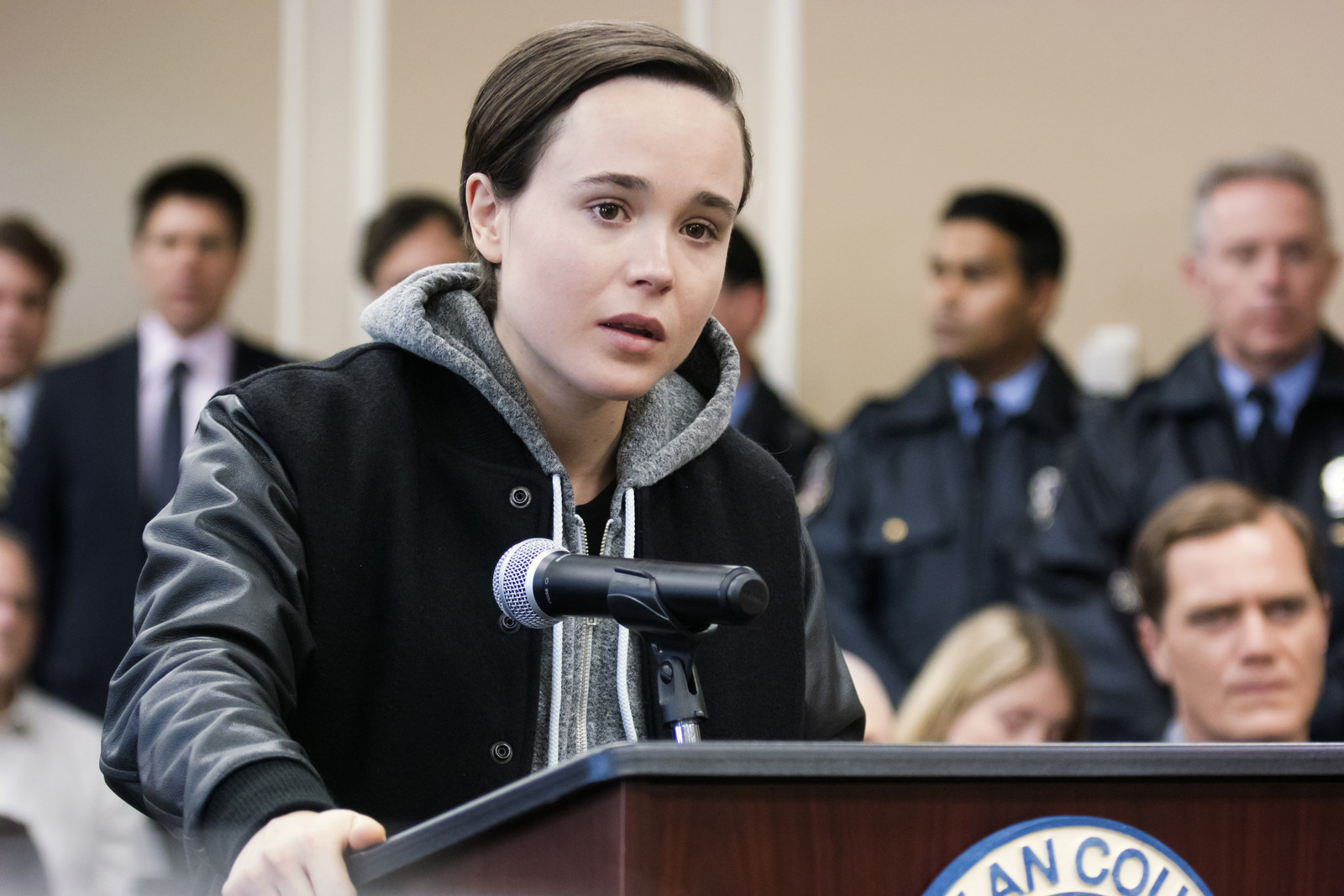
Short documentaries reach only a limited audience, of course. But given the small amount of time she'd had with Hester, Wade couldn’t make a feature-length film. And maybe, she thought, she could try to get an Oscar nomination. "Which was a whole thing to do with no money, but we did it in this grassroots way," Wade said. Through LGBT groups and police associations and cancer nonprofits, she raised the money to put the movie on 35 mm film and rent theaters around the country to qualify for the Academy Awards. It worked; the film was nominated, and then won the Oscar for Best Documentary Short in 2008.
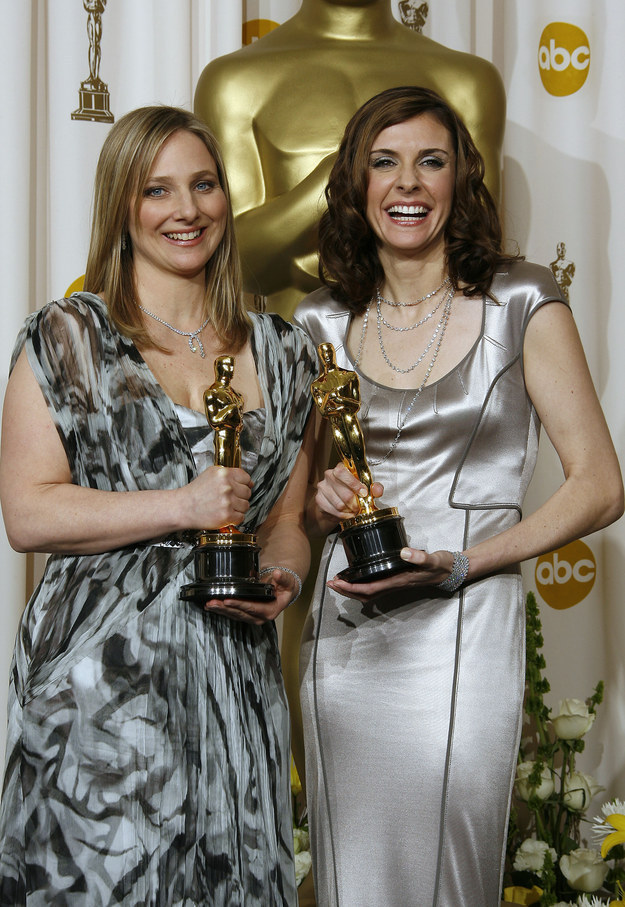
After its victory, Wade — who had Hester's, Andree's, and Wells' life rights — fielded a range of offers to adapt the story into fiction, with her as a producer. "Some of them were, like, 'We'd like to make a Lifetime movie!'" Wade said. She ended up choosing Double Feature, run by Stacey Sher and Michael Shamberg, who had produced such films as Erin Brockovich and Garden State. (Shamberg and Sher have since split as partners; Shamberg is an adviser to BuzzFeed Motion Pictures.) "Knowing their body of work, knowing how high-caliber they are and how serious they are, and how true they are to the actual story always, they had such experience — way beyond my experience," Wade said.
Page was at those same Oscars when Wade won; she was nominated for Best Actress for Juno, which had been the surprise box office and awards hit in an otherwise dour year. (No Country for Old Men won over Juno, Atonement, There Will Be Blood, and Michael Clayton.)
Page had been acting since she was 10, but she was newly a star. With her Juno acclaim, she had graduated into a different category in which she could pick her next projects. As she filmed the Roller Derby movie Whip It later in 2008, Shamberg and Sher approached her about playing Stacie in a Freeheld feature — but there was no script yet, so they sent her only the documentary's trailer. For Page, who was only just beginning to experience the pain of being a closeted celebrity, the story spoke to her.
"They were so gracious," Page said in a recent interview. "They let me be so involved in the development process, and that's what led to being a producer on the film." Page and her producing partner, manager, and then-publicist, Kelly Bush Novak, were "there from the beginning," said Wade. Page "was steadfast in reaching out to other actors, and Kelly reaching out to other producers, and figuring out the financing.”
"I wanted this movie to have a lot of integrity."
Page's involvement attracted development money, and in 2010, Shamberg and Sher brought on Nyswaner, an out gay screenwriter who had been nominated for Best Original Screenplay for the 1993 AIDS courtroom drama Philadelphia. Nyswaner dove deep into learning the real story, he said during an interview in a hotel restaurant in Toronto during the festival last month. He began to spend time with Andree and Wells to get to know them — and Hester through them — as well as talking with Goldstein. He read transcripts of the Freeholders meetings and watched all of Wade's footage. "I think a lot of times truth does not need to be improved," he said. "Look, I know I'm making entertainment — it has to be entertaining so people will go see it. But this was history. Most of what people say in the movie, they actually said. I wanted this movie to have a lot of integrity."
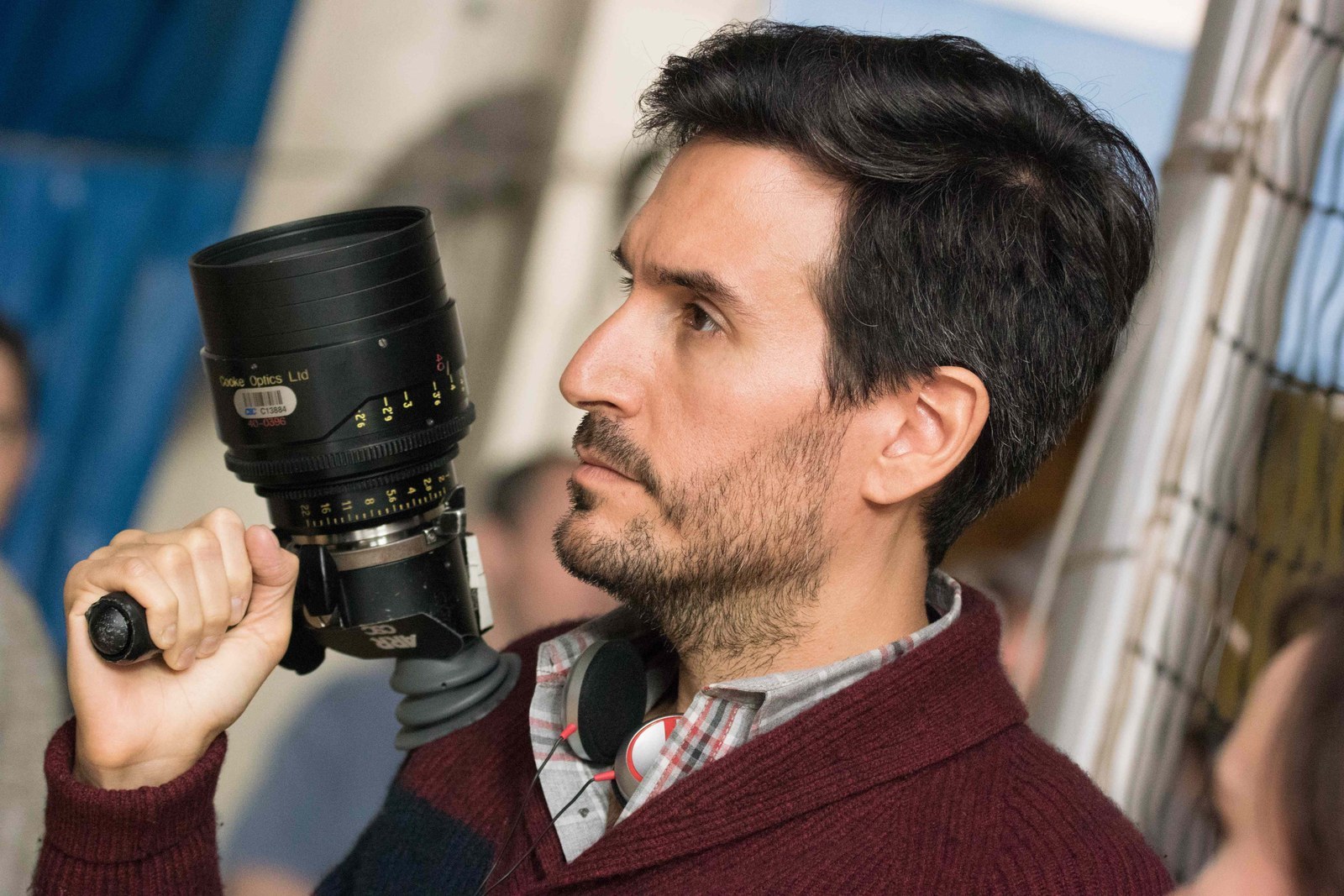
The producers had met with directors throughout the development process, but Sollett, who had directed the lauded Raising Victor Vargas (2002) and Nick and Norah's Infinite Playlist (2008), received Nyswaner's screenplay in summer 2012. He considered Nyswaner to be a mentor after having met him at a Sundance Institute lab when Sollett was writing Raising Victor Vargas. "I read it and I was devastated," Sollett said of Freeheld, immediately asking to see the documentary. "The project was irresistible."
In order to get the job, Sollett had to meet with Page. "She was a bit shy," he said, as we sat in an empty bar in a Toronto hotel over coffee. "She was very protective of the material, and she was going to be very particular about who directed it." Page asked him what his vision for the film would be, and he said he saw it as a "beautiful love story."
"That's how we Trojan horse these things in the movies."
"Obviously, we're making a movie with a social conscience, and we're trying to sway the hearts and minds of people for sure," Sollett told her. "But the only way we do that is by dramatizing for them a really beautiful love affair. That everybody can relate to, that's universal, that leans on what's universal about the relationship. And that's how we Trojan horse these things in the movies."
And he didn't want Laurel and Stacie to be defined by their sexual orientation. "Unfortunately, that's what other characters in the film do, and that poses the obstacles they need to overcome," Sollett said. "But if we did that as filmmakers, the audience would reject us and they wouldn't accept the political message in the movie. And we'd be a bore."
Sollett got the job, but without stars to play Laurel and Dane, the project continued to lag, even as same-sex marriage gained wider acceptance both in popular polls and among state-by-state judiciaries. Considering that in 2008 when Wade campaigned for the Oscar, one of her selling points was to try to fight ballot initiatives banning same-sex marriage — most famously Proposition 8 in California, which passed — the political climate was changing rapidly.
"It's important and it's essential that we have the right to be married."
Nyswaner, whose Philadelphia 20 years earlier had told a story in which virulent homophobia was the norm, watched the advancements with surprise. "In the ’70s, we didn't want to get married," he said. "Marriage — and this is going to sound funny and perhaps odd — was a heterosexist, patriarchal, oppressive institution. We were going to destroy all those institutions. That's not what we were there for; we were not there to be normal." He continued: "And it's very interesting to me to see how we have changed, how the gay community has changed. It's an odd thing: It's important and it's essential that we have the right to be married, because that's a human, universal thing."
And so, in only a few years, Freeheld's narrative had shifted from representing a discriminatory status quo to framing a specific historic step forward in LGBT civil rights. At one point, Page, who had miserably been keeping herself closeted to the public throughout her early and mid-twenties, “didn't think it was possible to be out." But she was also evolving.
One thing always on her mind was that she would someday get to play Stacie. "What, are you going to not be an out gay actor when you shoot a movie like that?" she would ask herself.
Page's conclusion: "Dude, just tell people you're gay."
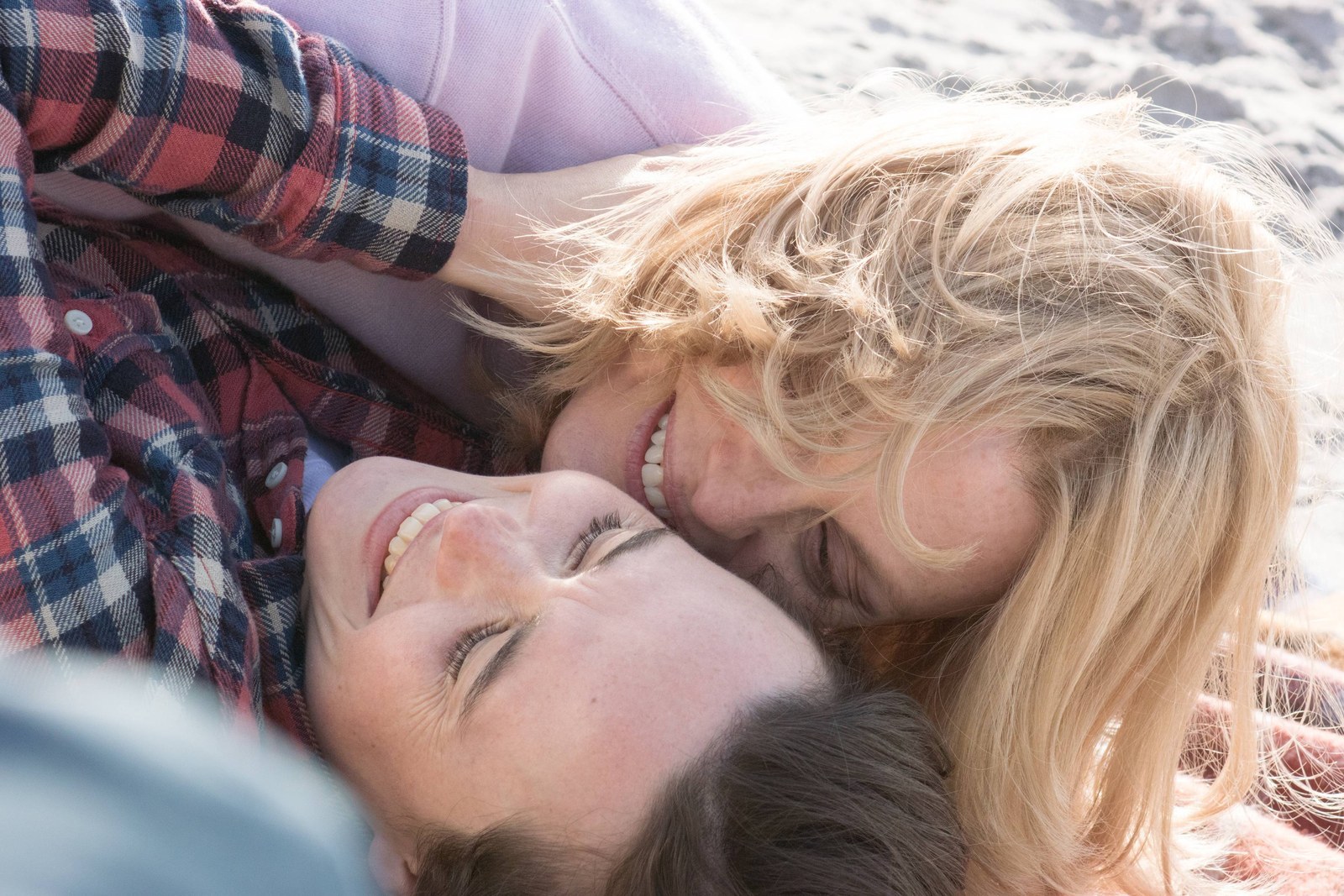
When Moore first considered the Freeheld screenplay in early 2014, she was on a plane with her teenage daughter. She read its opening scene, which features Laurel, Dane, and a drug bust. "It was all these cops on a boardwalk in New Jersey, and I kind of moaned," Moore said on the phone recently. "And my daughter said, 'What?' And I said, 'It's a procedural — I hate procedurals!'" Moore read on, and realized she had been wrong about the movie's plot. Later, she told her daughter, "It turned out to be this love story, and this civil rights story — and I'm going to do it."
Moore signing on meant the movie would be made. "I think I jumped up and down and started screaming when that phone call came from Peter saying, 'I think we have Julianne Moore,'" Nyswaner said.
Though, as Page pointed out, "You still have to navigate a budget to allow two women to be the leads in a movie." Freeheld's production budget — it was made independently, and then later sold to Lionsgate — was less than $7 million. The movie would start production in the fall of 2014.
"They're very matter-of-fact, and they just want what's right."
In the months to come, Carell replaced Zach Galifianakis, who had to drop out for family reasons, as Steven Goldstein, and Shannon signed on to play Dane Wells. Shannon, who often plays menace and creepiness to great effect, was excited to play the stalwart, bighearted Dane, who is the film's third lead. "These people are not — I don't want to say flamboyant, because I don't have a problem with people being flamboyant. But they're just not melodramatic. At all," Shannon said in an interview last month in a Toronto hotel room. "They're very matter-of-fact, and they just want what's right. To me, it's all the more moving. They weren't looking for any of this."
The social justice aspect of Freeheld mattered to Sollett, Nyswaner, Moore, and especially Page — who came out publicly on Valentine's Day 2014, one day after Moore's casting was announced — and Shannon valued that as well. "It's very important to me. My eldest sister is gay. I went to her wedding, and she's with a wonderful woman," he said. "It was nice to be able to work on something that I think will hopefully mean something to somebody in my family."
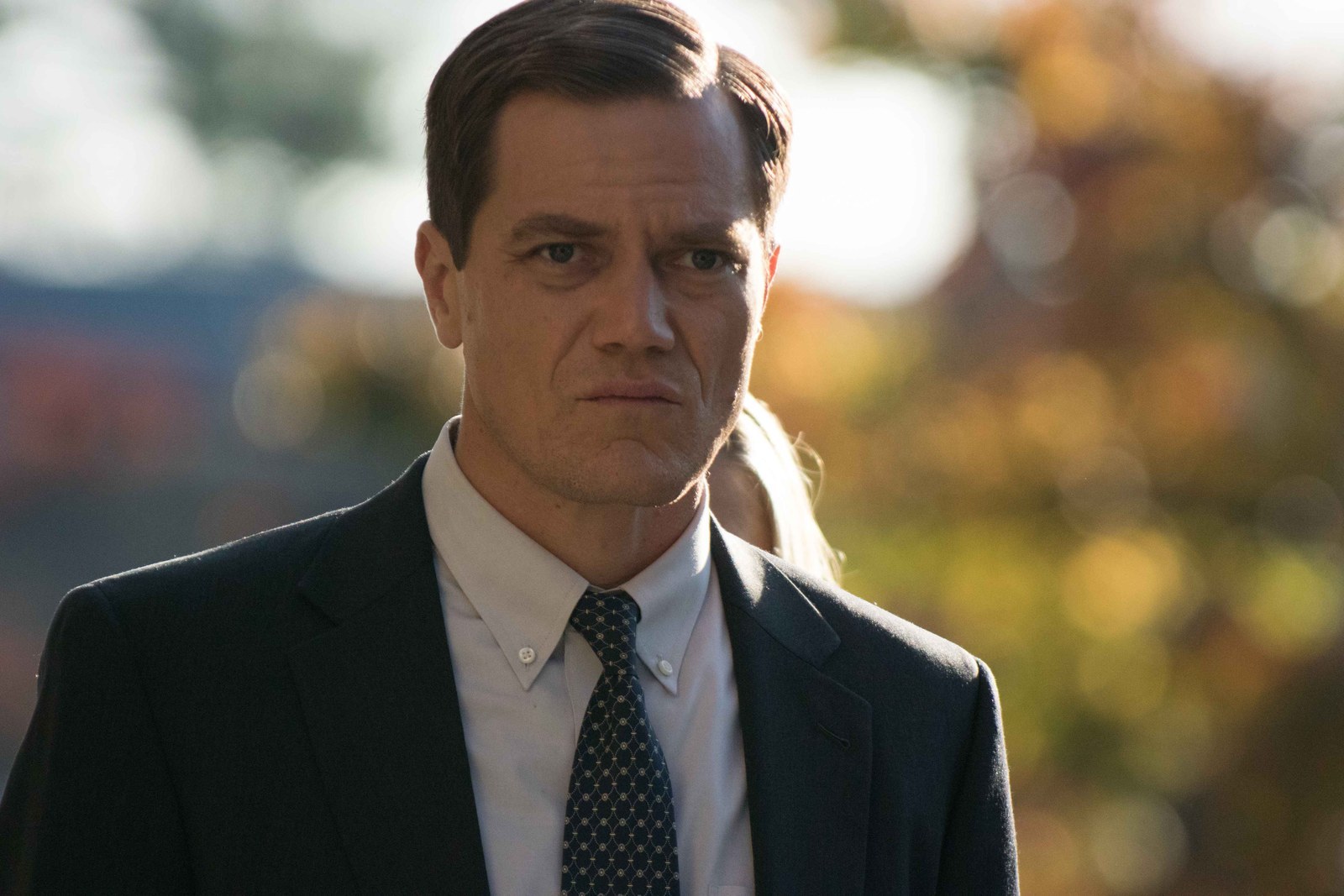
The actors who could spend time with their real-life counterparts, did. Page got to know Andree, and also asked Wade for the footage of Andree's interviews from the documentary so she could listen to her voice. Shannon went to visit Wells in his New Jersey home, which Shannon described as "very peaceful."
"It's all under the surface with him," Shannon said of Wells. "Had I not met him, I might have walked onto the set and my arms would be flying around and I'd be hollerin' or something. Dane's not like that. I mean, Dane doesn't even swear." He continued: "He's a very quiet, thoughtful, kind of reserved person. But he exudes this warmth. He made me feel very at ease. I was very nervous to meet him, because I was gonna play him."
In constructing Dane in the story, Sollett and Nyswaner wanted to be mindful to avoid, as Sollett called it, "the hetero hero concept," in which the straight man steps in to save the lesbians. "We were really conscious of it. We talked about it on set," Sollett said. "It's the truth of the situation. I hope that that is significant to people. Dane Wells is somebody who was really transformed by this experience, and he's somebody I admire. I also hope that people see that this was Laurel's action — she chose to take this action. There were people who supported her, but they were there supporting her, they didn't do it for her."
"Social change — it happens with the help of allies," Sollett continued. "And I think that's OK. I'm straight! But the film, the statement the film makes is a statement about the world I'd like to live in."
Wade said that Wells' place in the movie is true to what she witnessed. "It came at a great political and personal cost at the time," she said. "There were other cops who would say they were going to come visit Laurel, or say they would show up at the meetings, and they wouldn't show up. Dane was the one who was visiting and shoveling her driveway when there was snow."
Page and Shannon had access to their characters' real inspirations: Moore — an actor known for her obsessive research — had to find other ways to figure out who Laurel was. Wade said: "Julianne would call me on the weekends and say, 'Can you send me more footage? Can I have more stuff? Can I have transcripts of everybody?' She was like an investigative reporter. She wanted everything, and she consumed it all."
"There was something so cool and glamorous about her."
"I think when you're young, you relish the whirl of your imagination," Moore said about her process. "And the older I've become, the more I realize that everything I need is in real life. And that's where I find the most important things." Moore visited Andree, who still lives in the Point Pleasant house she and Hester bought and fixed up, and saw photographs of Hester from before she got sick. "I saw this woman with this incredible blonde hair that she'd had since she was a teenager," Moore said. "She was always blow-drying her hair. There was something so cool and glamorous about her. And I was, like, Whoa! And Stacie was like, 'Yeah, that was her.' These pictures of this woman in a bikini at the beach with all this great blonde hair — that just gave me a whole other element of her personality." In addition to Hester's attachment to her hair, she learned that she wore her police medallion as a necklace ("She had wanted to be a cop from the time she was a really young person," Moore said. "She believed in the justice system.") and that, according to Andree, Hester could be "bossy." "It's not surprising!" Moore said with a laugh. "She liked to do things a certain way."
Carell didn't have the months the other actors had to prepare, but he and Goldstein were on set at the same time. Goldstein said he had been instructed that "there's nothing more annoying to real actors than when the real people they portray are on set and say, 'You're not playing me right,'" so he planned to keep quiet around Carell. To his surprise, Carell said to him, "Steven, am I playing you right?" So he answered Carell honestly: "I said, 'Steve, more energy — up it. I never sit down, I'm someone who can't sit still. Actually ramp it up a bit more over the top!"
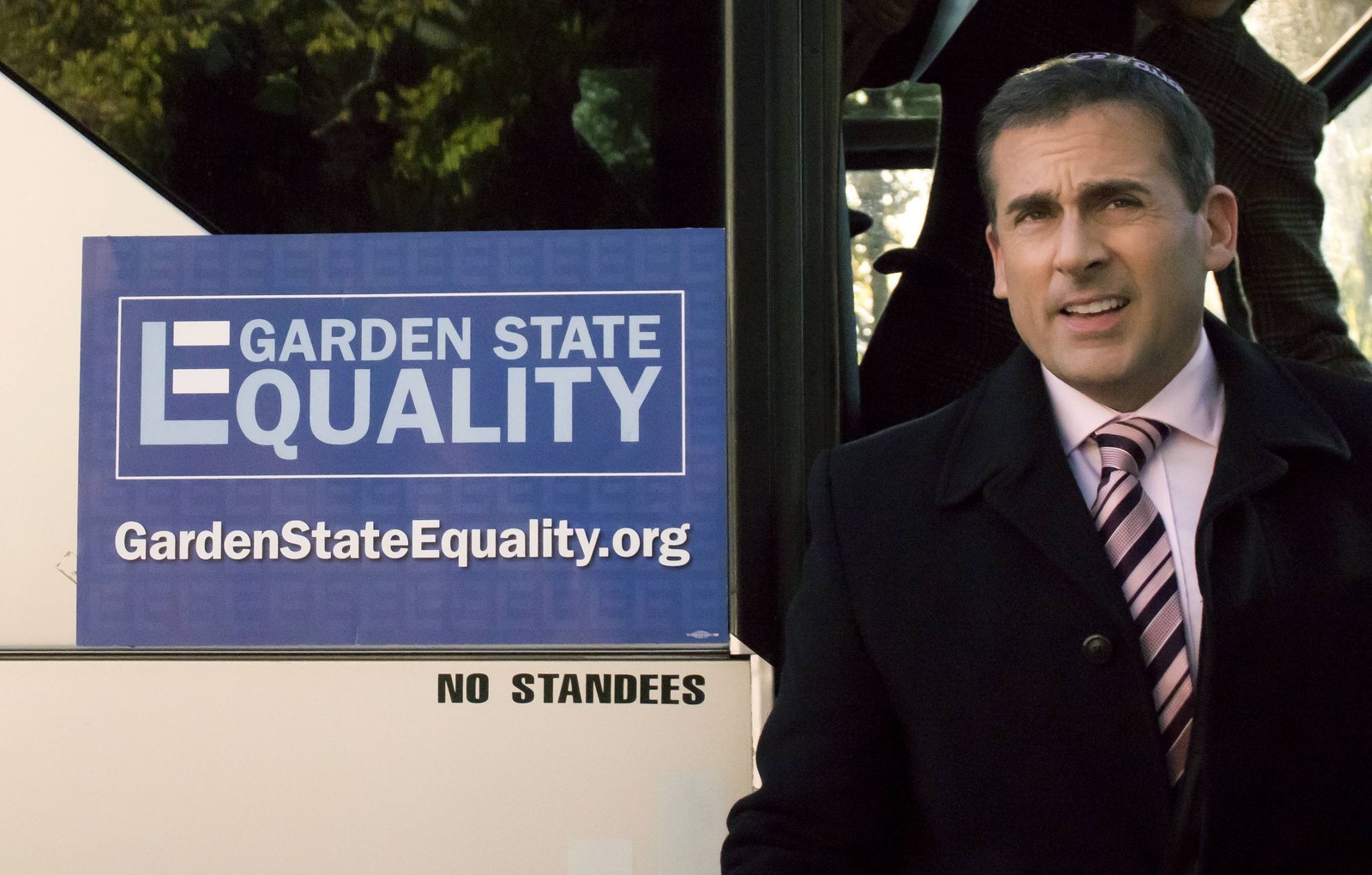
Some early reviews have been critical of Carell's performance; The Guardian called him an "especial irritant" and quoted Goldstein saying to Hester, "Oh honey, I’d marry you, but I wouldn’t know what to do with your vagina."
Regarding that line, Wade said, "Well, that really happened — I filmed that." It was among the footage she had showed to Nyswaner, and he wrote it into the screenplay. "Carell was Goldstein," Wade said. "I have to say, it's accurate."
Goldstein himself has taken great umbrage at the suggestion that Carell has created a caricature. "New Jersey is a state where big personalities capture people's hearts and their attention. No, I don't wake up every day and execute in my activism every moment the persona of a quote-unquote loud gay Jew," he said, in a topic he kept returning to.
"I think reviewers are actually forgetting that this is a true story, folks, that emerged in success!" Goldstein said, almost shouting through the phone.
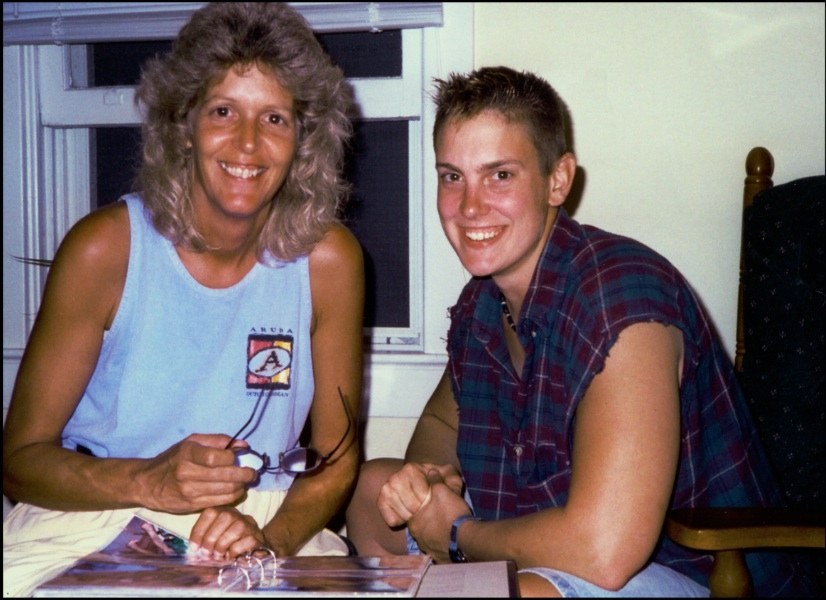
Wells and Andree both said that the new version of Freeheld doesn't feel like fiction to them either. "I was probably, as much as anything else, surprised at how accurate they were able to do it," Wells said. Andree added: "Julianne did a tremendous job as Laurel. From the characteristics, to her look, to how she acted — it was amazing."
(But, Andree wants it made clear, "I didn't go home with her on the first date." Having not thought twice about that detail in the movie, I said I wouldn't judge. "I'm just saying," Andree said. "They had to hurry things up." Wells said, "Laurel wouldn't have taken you home on the first date." Andree laughed, and said: "I know! But I didn't go either.")
Both Wells and Andree were pleased with Freeheld's larger message. It's a civil rights film that reflects how 2006 feels like the distant past, especially after this June's Supreme Court decision legalizing same-sex marriage. "To the extent that we've been a small cog in the wheel of that, I guess it's something to be proud of," Wells said. Andree, who talked about missing Hester, was more self-protective. "Every time it comes back up, it's like a stab in the heart," she said. "I lived it, then it kind of healed. Then the documentary — then it kind of healed. Now the feature film —"
She paused, and thought for a moment. "But it's for a good cause. And it's what Laurel always wanted."
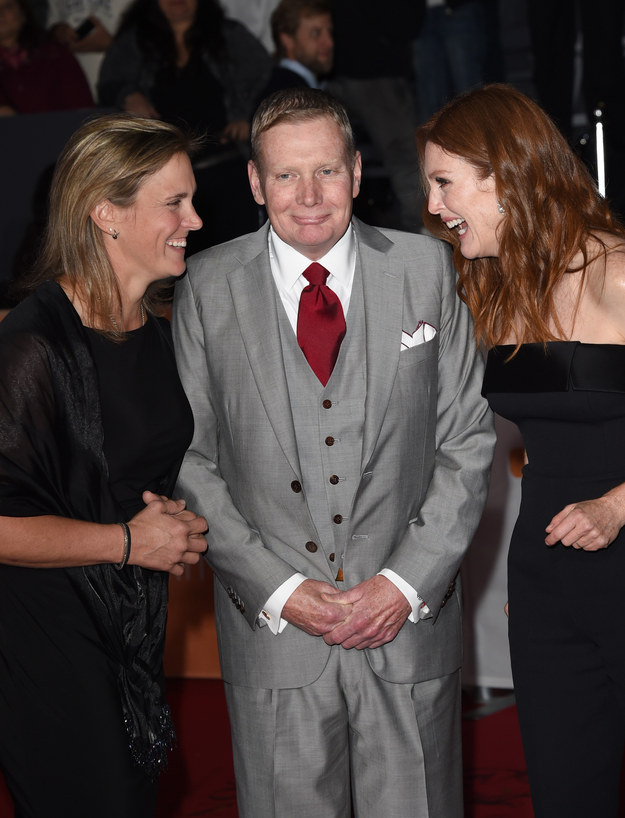
"Her legacy is really a tremendous one," Moore said of Hester. "There was somebody in a review out of Toronto that really made me upset, because it said this movie was terribly timed, it should have come out before marriage equality. I was, like, What!"
Moore gathered steam as she talked. "First of all, this movie was eight years in the making. We made it when we could make it — no one was making it," she said. "And second of all, that makes the assumption that we shouldn't acknowledge what these people did that changed everything: Oh, now we have marriage equality, we don't need a movie about it. I think it's important to talk about what the sacrifices were, and what people actually had to go through to get it."
Page — having been involved with Freeheld for seven years, and having come so far herself — is mindful of how the world has changed. "Now you can get married," Page said. "Incredible! That being said, there's still so much to do, right? There's still so many issues to deal with. And whenever there is an incredible amount of progress, there tends to be backlash. Which we're seeing. And it's people who are, I would say, a minority — but they're loud. And they seem angry."
Sollett — who is soft-spoken and thinks before he talks — considered what he would like Freeheld's legacy to be. After a bit of time, he said: "I hope that it connects with people and I hope it moves them. And in some way, I hope it breaks their heart. Because if it does, for some of them it means that we've changed them a little bit. I hope that it stands the test of time, and that we can look back on it in a few years and that it still seems like something of quality.
"But I also hope we look back on it and it looks dated," Sollett said. "And I hope that we look back and see how far we've come."
